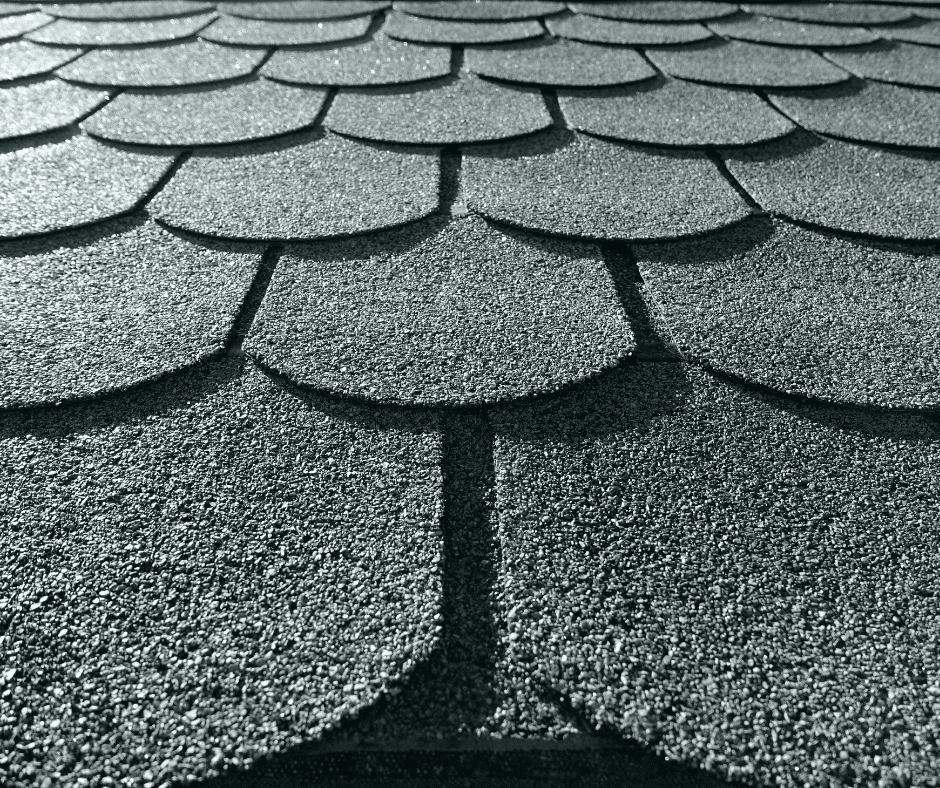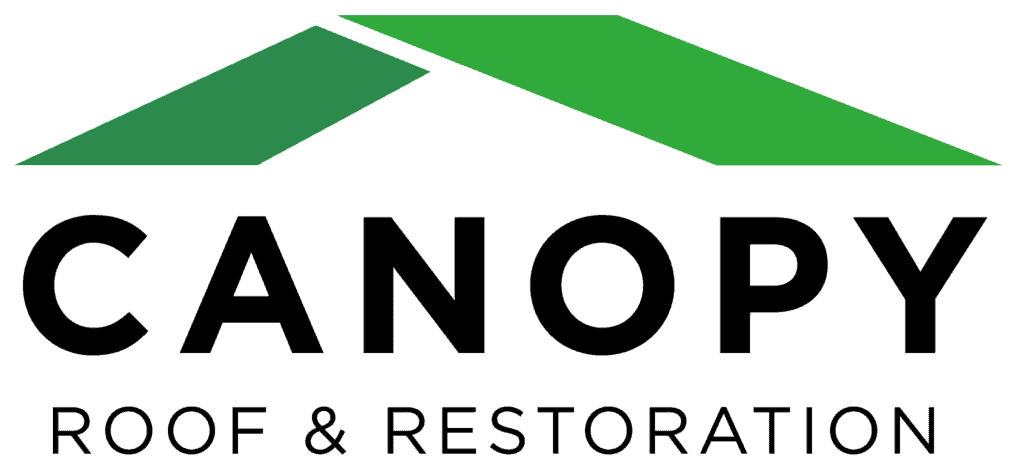When it comes to roofing, many homeowners find themselves at a crossroads, weighing the options available. Among these, asphalt shingle roofing stands out as a particularly popular choice in North America. In fact, it remains the most common residential roofing option in the United States. This widespread preference isn’t surprising given the balance asphalt shingles offer between cost, style, and functionality.
However, like any material, it has its share of pros and cons. In this article, we’ll delve into the nitty-gritty of asphalt shingle roofing, providing a balanced perspective to help you decide if it’s the right fit for your home. With an understanding of its benefits and limitations, you’ll be better equipped to make an informed choice for your roofing needs.

The Pros of Asphalt Shingles
Choosing the right roofing material is crucial for both the durability and appearance of your home. Asphalt shingles, with their unique combination of features, offer several compelling advantages. Here, we explore these benefits to understand why they might be the right choice for your roofing needs.
Ease of Installation
Asphalt shingles stand out for their simplicity in installation. They are light and flexible, so they don’t require specialized labor or tools for installation. This ease extends to DIY projects, making them a feasible option for adventurous homeowners keen on undertaking roofing projects themselves.
Low Cost
One of the biggest draws of asphalt shingles is their affordability. They are among the least expensive roofing options available, making them a budget-friendly solution. The cost-effectiveness of asphalt shingles extends beyond the initial purchase; their light weight contributes to lower transportation and installation costs, further reducing the overall expense.
Long Lifespan
Asphalt shingles boast a relatively long lifespan, which adds to their appeal. While not the most durable option compared to more expensive materials like metal, a well-maintained asphalt shingle roof can last up to 20 years. This longevity makes them a viable option for homeowners looking for a balance between cost and lifespan. It’s important to note that some high-quality architectural shingles can even last up to 50 years with proper care.
Color and Style Selection
The variety of colors and styles available in asphalt shingles is another significant advantage. They come in a wide range of colors, from classic blacks and browns to more unique greens and blues, which allows homeowners to choose hues that best suit their home’s aesthetic. Furthermore, asphalt shingles are manufactured in various styles, including those that mimic more expensive materials like slate or wood.
Simplified Maintenance and Repair
The straightforward maintenance and repair process of asphalt shingles is a noteworthy benefit. Asphalt shingles can be replaced individually, which is a significant advantage. This means that if a shingle is damaged, there’s no need to redo the entire roof, making maintenance both easier and more cost-effective. This feature is especially useful in managing minor damages and prolonging the roof’s life.
Extensive Warranty Options
Asphalt shingles often come with extensive warranty options, offering homeowners peace of mind. Many manufacturers provide substantial warranties that cover various defects, such as shingle curling, granule loss, and thermal splitting. Additionally, some contractors offer their own warranties to cover damage from elements like wind and hail. These warranties can be a significant advantage, providing added security and value to your investment.
Enhances Curb Appeal
One of the standout advantages of asphalt shingle roofing is its ability to enhance your home’s curb appeal. With a vast array of colors and styles to choose from, asphalt shingles can be tailored to match the architectural design and aesthetic preferences of your house. This visual enhancement not only leaves a positive impression on passersby but also significantly increases your home’s resale value. In fact, a well-maintained asphalt shingle roof can yield an impressive return on investment (ROI) of up to 70%, making it a lucrative choice for homeowners looking to elevate the visual appeal and value of their properties.
The Cons of Asphalt Shingles
While asphalt shingles offer numerous advantages, they also come with their fair share of drawbacks. Considering these disadvantages is essential to make an informed roofing decision for your home.
Requires Periodic Maintenance
Asphalt shingle roofing requires regular maintenance to ensure its longevity. Over time, exposure to the elements can cause shingles to become damaged or dislodged. To maintain the roof’s integrity, homeowners must periodically inspect for missing or damaged shingles and replace them promptly. Neglecting this maintenance can lead to more significant issues down the road, making routine checks and repairs essential.
Low Insulation Value
When it comes to insulation, asphalt shingles have limitations. They provide minimal insulation on their own, which can result in less energy efficiency for your home. Unlike some roofing materials like metal or tile, asphalt shingles do not offer substantial insulation against temperature extremes. To improve energy efficiency, homeowners with asphalt shingle roofs often need to invest in additional attic insulation. This extra step is necessary to keep your home comfortable and energy-efficient, particularly in regions with extreme weather conditions.
Vulnerability to Wind Uplift
Asphalt shingles can be vulnerable to wind uplift, particularly in regions prone to strong winds and storms. The lightweight nature of asphalt shingles, while advantageous in some aspects, can lead to shingles becoming dislodged or lifted during severe weather conditions. This susceptibility to wind damage can result in the need for frequent repairs or replacements, impacting the overall durability of your roof.
Limited Fire Resistance
It’s essential to be aware that asphalt shingles have limited fire resistance. While they are not highly flammable, they do not provide the same level of fire protection as some other roofing materials. This lack of fire resistance can pose a safety hazard in areas where wildfire risks are a concern. Homeowners should consider fire-resistant roofing options in regions prone to wildfires to enhance their property’s safety.
Lack of Architectural Uniqueness
Asphalt shingles are widely used and may not offer the architectural distinctiveness that some homeowners desire. Their prevalence in many neighborhoods can result in a lack of individuality in the appearance of your home. Asphalt shingles may not fulfill this requirement if you seek a roofing material that sets your property apart and adds a unique architectural touch.

Sustainability Concerns
Asphalt shingles can have a notable environmental impact due to their composition, primarily derived from petroleum-based materials. This raises sustainability concerns, as their production contributes to the consumption of non-renewable resources. Additionally, the disposal of old asphalt shingles in landfills can release harmful hydrocarbons into the environment, making it essential to explore more eco-friendly roofing options.
Sensitivity to Temperature
Asphalt shingles, while durable in many respects, are sensitive to temperature fluctuations. They can become vulnerable in extreme weather conditions, such as prolonged exposure to intense heat or cold. High temperatures can lead to shingle curling and granule loss, while freezing temperatures can make them brittle and prone to cracking. It’s crucial to consider your local climate when opting for asphalt shingle roofing and take preventive measures to protect your roof from extreme weather conditions.
Is Asphalt Shingle Roofing Right for You?
Asphalt shingle roofing offers a range of advantages, from ease of installation to affordability and enhanced curb appeal. However, weighing these pros against the cons is crucial, such as the need for periodic maintenance and limited insulation value. When deciding on the right roofing material for your home, consider your location, climate, and aesthetic preferences. If you need professional guidance to make an informed decision, don’t hesitate to reach out to us. Your perfect roofing solution is just a consultation away.





